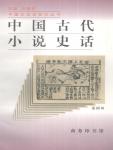Chapter 1 foreword
The connotation of the word "novel" has gone through a long process of historical evolution.From the perspective of etymology, the word "novel" was first seen in "Zhuangzi Foreign Objects": "To decorate a novel as a county magistrate, it is far away from Da Da." "Qian" means seeking, and "county" is common "Xuan" means high, and "Ling" means reputation.It means modifying trivial words in order to gain high reputation, which is too far away from the realm of mastering the Dao.Zhuangzi's so-called "novels" are far from what people call novels today.There is also the so-called "small way" in "The Analects of Confucius Zizhang", the so-called "Xiaojiazhen theory" in "Xunzi Zhengming", and the so-called "novel" in Zhuangzi. words.In the Eastern Han Dynasty, Huan Tan's "New Theory" pointed out: "The novelist combined a group of remnants of small words, and drew close analogies to write short books to manage the body and manage the family. There are considerable words." So far, "fiction" has become a kind of The style, and those who are good at it are called "novelists".Ban Gu's "Hanshu·Yiwenzhi" listed 10 in the "Zhuzi Lue", with the novelist at the bottom.Ban Gu listed the titles of 15 "novels" and made a small note.Judging from the title and notes, Ban Gu's so-called "novel" is between Zi and Shi.It is close to Zibu but not as profound as Zishu, and close to Shibu but not as accurate as Shishu.After Ban Gu, "novel" was regarded as a title of a style, but the scope it referred to was quietly expanding. "Fiction" has gradually become synonymous with "miscellaneous compilation"."Shi Tong" by Liu Zhiji of the Tang Dynasty divides "Pianji Novels" into 10 categories: Pianji, Xiaolu, Anecdotes, Trivia, County Books, Family History, Biography, Miscellaneous Notes, Geography Books, and Metropolitan Books.Hu Yinglin of the Ming Dynasty’s "Shaoshi Shanfang Bi Cong" divides "novels" into six categories: Zhiguai, Legends, Miscellaneous Records, Gathering Talks, Differentiation, and Admonitions.The "Siku Quanshu" in the Qing Dynasty classified novelists into three categories: miscellaneous affairs, strange news, and trifling notes.
After the Song and Yuan dynasties, apart from "miscellaneous compilations", there was another parallel understanding of the word "fiction".With the prosperity of art in the Song Dynasty, "fiction" became the most influential subject in the art of speaking.Because this kind of subject is the most attractive, "fiction" is gradually used to refer to various schools of speaking art, and then to refer to vernacular novels produced from speaking art.Vernacular novels and classical Chinese novels each have their own historical development process, but as novels, they are consistent in their literary essence.The ancients did not realize this, and did not give the two a common name.Until the late Qing Dynasty, foreign novels were translated one after another and poured into ancient China. Politicians and thinkers such as Kang Youwei and Liang Qichao all wrote monographs on novels. Their so-called "novel" has become a clear literary concept.After the two-way promotion of foreign and domestic novels, the modern concept of novels has finally been formed.
Chinese poetry developed relatively early.The achievements of "Songs of Chu" and "Songs of Chu" have been praised by later generations, and the poems of the Tang Dynasty are even more dazzling and beautiful.However, the pace of Chinese novels faltered, and it was not until the Ming and Qing Dynasties that they ushered in the colorful spring.Tang people's novels (legends) have achieved considerable results, but after all, they are only a branch of novels-classical Chinese short stories.The precocity of poetry prevents it from being more influenced by other arts, thus developing a rather pure lyrical character.The late blooming of the novel allows it to calmly extract nutrients from poetry, prose, and opera to nourish its own body, thus forming a temperament that is far more complicated than poetry.The heyday of ancient novels is so long overdue, but its source must be traced back to the distant and remote ancient times.
Notes:
Notes:

